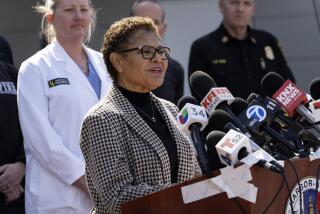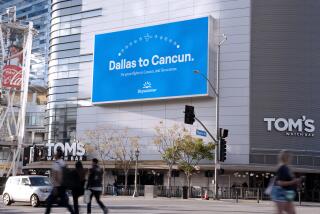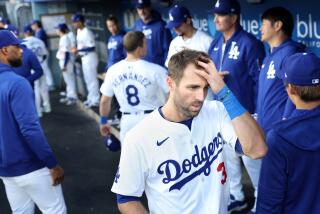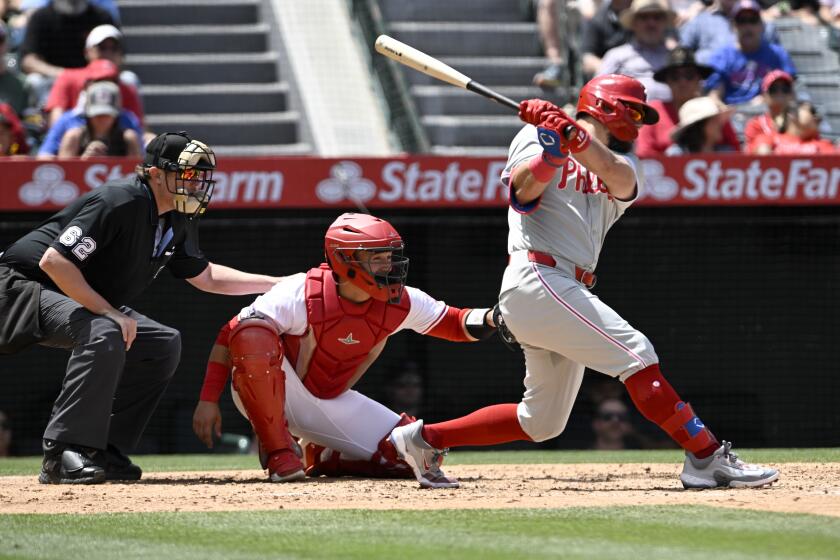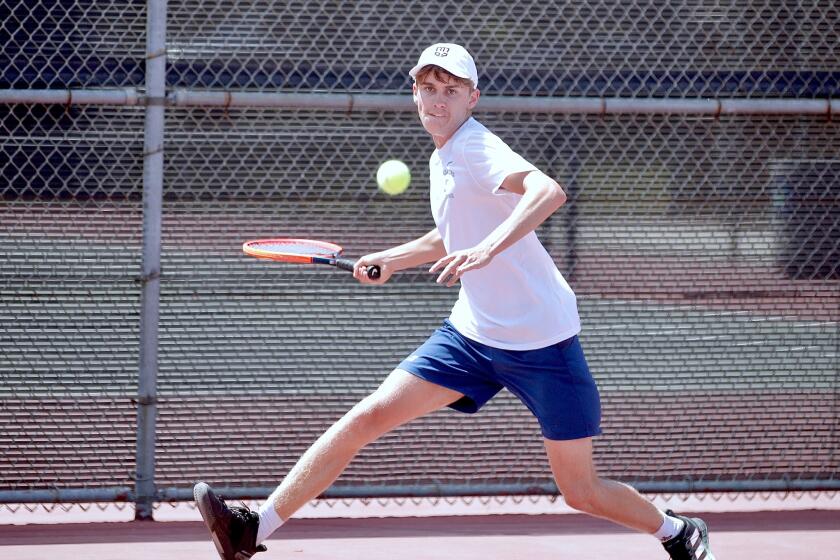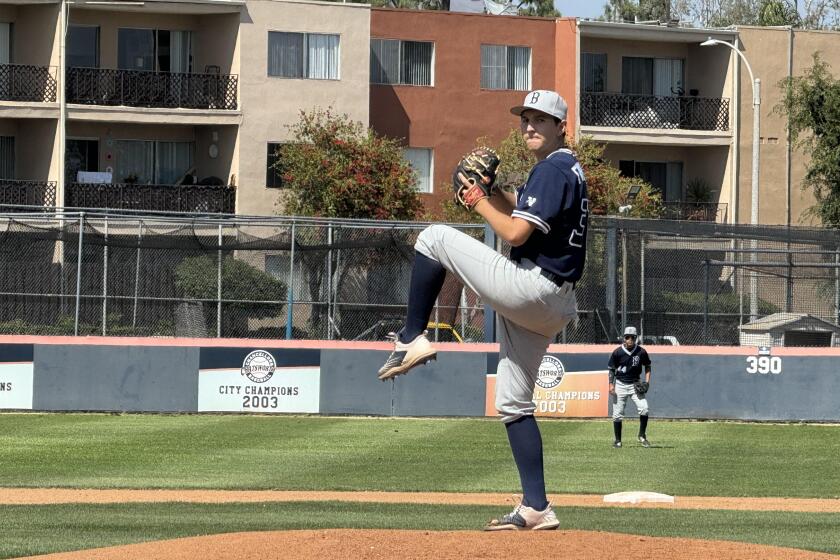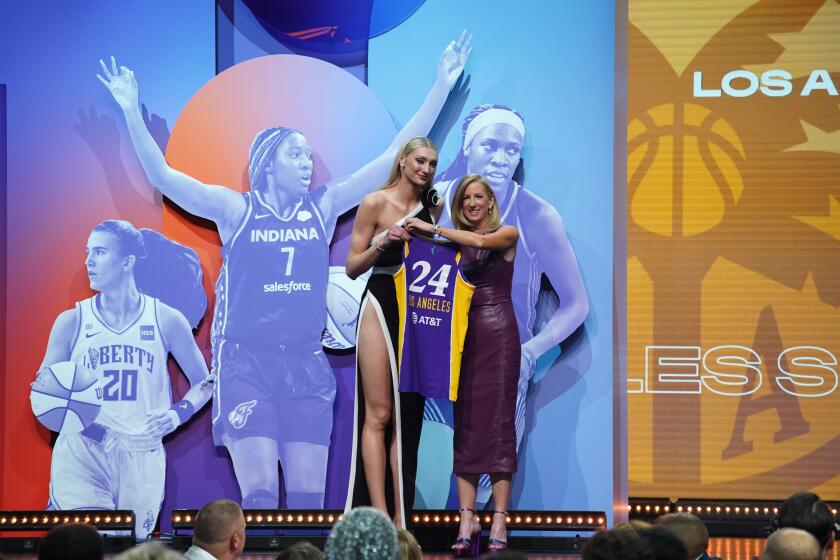Kulwicki Engineers a First-Time Victory : Rudd’s Late Mishap Helps Him Finish First at Phoenix NASCAR Race
Fittingly perhaps, a first-time winner won the first-ever Winston Cup stock car race held at Phoenix International Raceway.
Alan Kulwicki, a mechanical engineering graduate of the University of Wisconsin, took advantage of Ricky Rudd’s late-race misfortune Sunday to win the Checker 500 NASCAR race in front of a record crowd estimated at 60,000.
In the race for the Winston Cup championship and its $400,000 bonus, Bill Elliott maintained his 79-point lead over Rusty Wallace by finishing fourth, one position ahead of Wallace. This neutralized the 5 points that Wallace earned for leading a lap.
Elliott needs only to finish 19th, even if Wallace wins the race, in the season-finale Nov. 20 at Atlanta, to win his first national championship.
Sunday’s race was an artistic success for raceway owner Buddy Jobe and his PIR staff as the huge crowd jammed every available seat and swarmed over the cactus-dotted hills that look down on the track built 24 years ago alongside the Gila River cotton fields. The largest previous racing crowd in Phoenix was 45,500 for last April’s Checker 200 Indy car race.
Rudd appeared to have the race well in hand after leading for 182 of the first 297 laps before his Kenny Bernstein-owned Buick slowed abruptly only 15 miles from the end of the 312-mile race. A broken radiator hose overheated the engine and all Rudd could do was limp back to the garage.
This put the tenacious Kulwicki and his privately-owned Ford in front and he held on to finish 18.5 seconds ahead of Terry Labonte, in a Chevy, and Davey Allison, in a Ford.
Kulwicki rejected the notion that he backed into his first NASCAR victory in 85 career starts.
“We were closing on Ricky and had cut his lead from 5 seconds down to about 3 and we thought we had a chance to catch him even if he had not fallen out,” Kulwicki, 33, said. “No one will ever know if we could, but after all the bad breaks we had all week, we feel like we earned everything we got.”
What he got was a check of $54,100 and his crew chief, Paul Andrews, collected another $1,000 for being named mechanic of the race.
Kulwicki celebrated the victory in a novel manner--by taking his victory lap while driving in the opposite direction on the track.
“There will never be another first win, for me or for the track, and I wanted to do something the fans would remember,” he said. “I’ve been thinking about this for a couple of months. Some guys spray champagne, other guys stand on top of their car. I just wanted to be different.”
Kulwicki started 21st in the 43-car field after failing to qualify on the first day. Normally one of NASCAR’s finest qualifiers, having won four poles this season, he almost spun out in his first attempt and had to come back the second day to make the race.
“It’s funny,” he said. “A lot of friends came up to me after qualifying was over and said, ‘Hey, Alan, you didn’t qualify so well so maybe you’ll win the race. Now look at me.”
Qualifying was only one of the Kulwicki’s problems. He wrecked the car he had hoped to drive here in an accident in the last race at Rockingham and had to drive his superspeedway car--not the one he felt best suited to Phoenix’s mile oval.
“Early in the race, I knew I had to run hard to get to the front as quick as I could, but I also had to be careful and stay out of trouble in the traffic,” he said. “I was just making some headway when we had a lug nut round off on the second pit stop and I ended up dropping way back again. I nearly lost a lap before the crew got it fixed.”
When the nut wouldn’t come off, the crew sent Kulwicki out with 3 new tires and one old one on the right rear.
“I drove about 25 laps that way and all I could think about was what if they never got it off and I had to drive the rest of the race with that blistered tire. Luckily, we caught a yellow (caution period) and one of the crew broke it off and got a new tire on.”
About this time, Wallace and Rudd were chasing one another for the lead and the major interest in the race centered around the battle between Wallace, who had won the last 3 races but needed another one to catch Elliott in the points, and Elliott, who was driving a conservative race keeping in sight of the front-runners.
Kulwicki’s No. 7 never appeared among the top 10 leaders until lap 110 and he didn’t begin to challenge Rudd and Wallace until lap 220.
“Our car was running stronger the longer it went and I just kept concentrating on driving as fast as I could until I caught up,” he said.
Wallace’s hopes of winning his first NASCAR championship began to fade when he was passed by Kulwicki and Labonte. At the same time, Elliott, who had been trailing as far back as 11th, began to advance through the slowing field.
“Something messed up in the front end and made the car push,” Wallace said. “I don’t know what happened. I might have bent the toe-in. I was just fighting the car at the end.”
Elliott nearly lost a lap early in the race when he pitted for a flat front tire, but just as he limped in a yellow flag appeared and saved him.
“We did what we had to do,” Elliott said. “We came here and finished and we’re lucky. What else can I say? Rusty got out front early and we had a cut tire and that cost us. Now we’re going back to Atlanta and that’s our home track.”
Seven caution periods for 45 laps helped keep Kulwicki’s winning speed down to 90.457 m.p.h. for his 3 hour 26 minute 57 second run in the 95-degree desert sun. The big caution period came when Greg Sachs began to sway and slide coming off the fourth turn on lap 160 and before the dust and smoke had cleared there were 7 cars (Johnny Rutherford, Bill Schmitt, Mark Martin, Bobby Hillin, Michael Waltrip, Rick Wilson and Sachs) strewn along the front straightaway pit wall.
No one was hurt, except for Sachs’ feelings.
“I don’t know why they’re blaming me,” Sachs said. “I just got loose coming off four and lost it. There wasn’t much I could do about it. It certainly wasn’t intentional.”
More to Read
Get our high school sports newsletter
Prep Rally is devoted to the SoCal high school sports experience, bringing you scores, stories and a behind-the-scenes look at what makes prep sports so popular.
You may occasionally receive promotional content from the Los Angeles Times.
